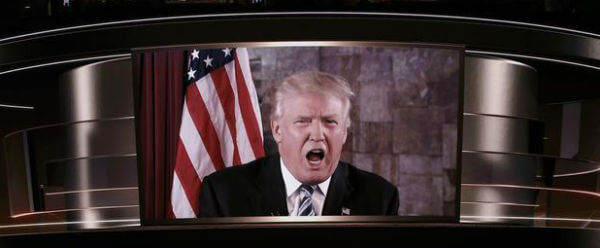The Washington Post reports: Stephen K. Bannon, President Trump’s reclusive chief strategist and the intellectual force behind his nationalist agenda, said Thursday that the new administration is locked in an unending battle against the media and other globalist forces to “deconstruct” an outdated system of governance.
In his first public speaking appearance since Trump took office, Bannon made his comments alongside White House Chief of Staff Reince Priebus at a gathering of conservative activists. They sought to prove that they are not rivals but partners in fighting on Trump’s behalf to transform Washington and the world order.
“They’re going to continue to fight,” Bannon said of the media, which he repeatedly described as “the opposition party,” and other forces he sees as standing in the president’s way. “If you think they are giving you your country back without a fight, you are sadly mistaken.”
Atop Trump’s agenda, Bannon said, was the “deconstruction of the administrative state” — meaning a system of taxes, regulations and trade pacts that the president and his advisers believe stymie economic growth and infringe upon one’s sovereignty. [Continue reading…]
Michelle Goldberg writes: CPAC, the country’s largest annual conservative gathering, has long drawn energy from young people who are resentful about liberal hegemony on college campuses. Now, however, it’s flailing as it tries to establish its own moral boundaries on right-wing speech. Its trouble started when Matt Schlapp, CPAC’s chairman, invited professional troll Milo Yiannopoulos to give a keynote address, sparking a furious backlash from traditional conservatives, who dug up statements by Yiannopoulos justifying man-boy sex. That ultimately led to Yiannopoulos losing his book deal, as well as his CPAC slot, and resigning from his job at Breitbart. In the aftermath, CPAC is trying to distance itself from the alt-right. Yet top Trump aide Steve Bannon, who once boasted that his website, Breitbart, was the “platform of the alt-right,” still had a prime Thursday afternoon speaking slot. And many young people in attendance reveled in the alt-right’s rebellious frisson of fascism. [Continue reading…]

